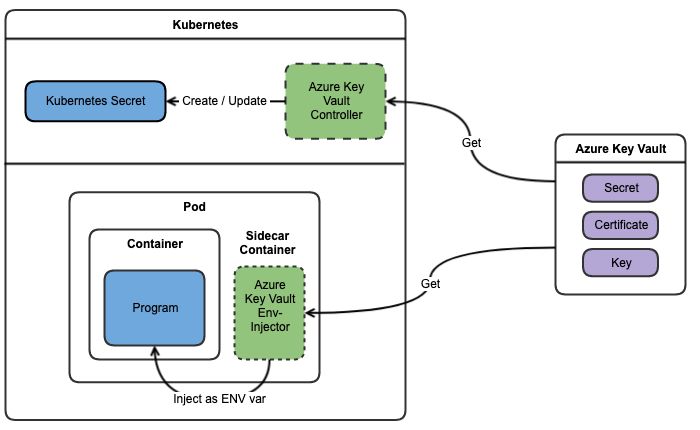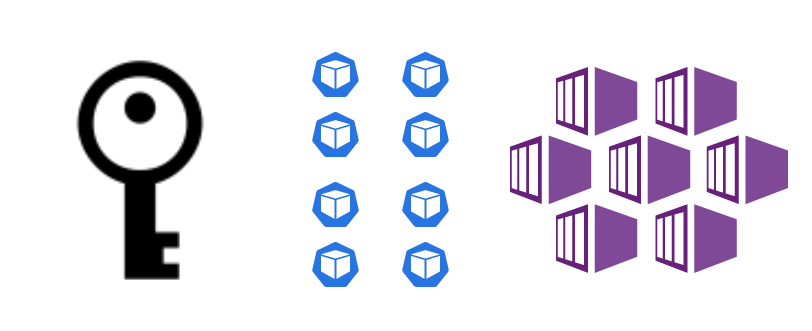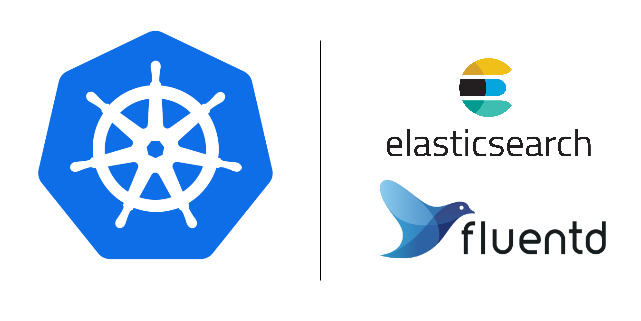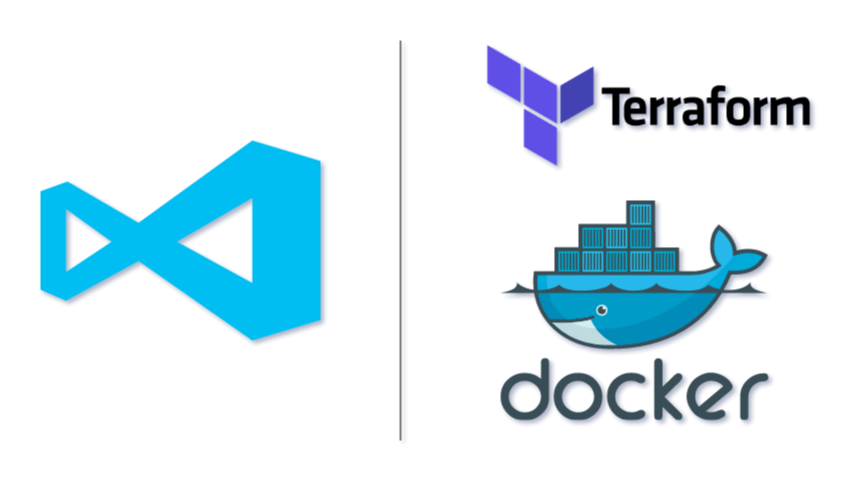The goal is to retrieve secrets from the Azure Key Vault and use them as ENV variables used by Pods when they are launched. A very useful tool that allows this man-oeuvre is Azure Key Vault to Kubernetes (akv2k8s). Azure Key Vault to Kubernetes (akv2k8s) makes Azure Key Vault secrets, certificates and keys available in Kubernetes and/or your application - in a simple and secure way.
Summary diagram on how it works.

Installation
Apply Custom Resource Definition for AzureKeyVaultSecret
*specify other versions if needed
Install akv2k8s components
Create separate namespace for these components
Install Components using helm charts
By default these components will use that subscription ID ,tenant ID and Kubernetes Service principal Accounts to access the Key Vault, since it is our case, no further setup to be done here
Use Components
Create namespace
We have to create a namespace with a specific label which will permit Get requests to the Key Vault, so that pods within this namespace can retrieve secrets.
Definition for the Azure Key Vault secret
Create a reference to the secret that is stored in the Azure Key Vault and that will be injected into the pod.
Deploy a test Micro-Service
Create a Test deployment that would use the secret
Using this Syntax “secret-inject@azurekeyvault” will retrieve the reference secret-inject where the name of the secret is defined testPassword and retrieve it’s Value from the Vault
Test Secret and Secret Value retrieval
The test Micro-Service above prints the arguments it is given, so we gave it the Secret ENV variable name to see if the retrieval operation of the Secret and its value was successful.

We indeed managed to retrieve the secret’s (testPassword) value (testPasswordValue) directly into the pod without specifying it’s content anywhere on the deployment chain. Also inject it as an ENV variable of that pod. Other Great thing is that only the entrypoint process can see the content of the secret.


